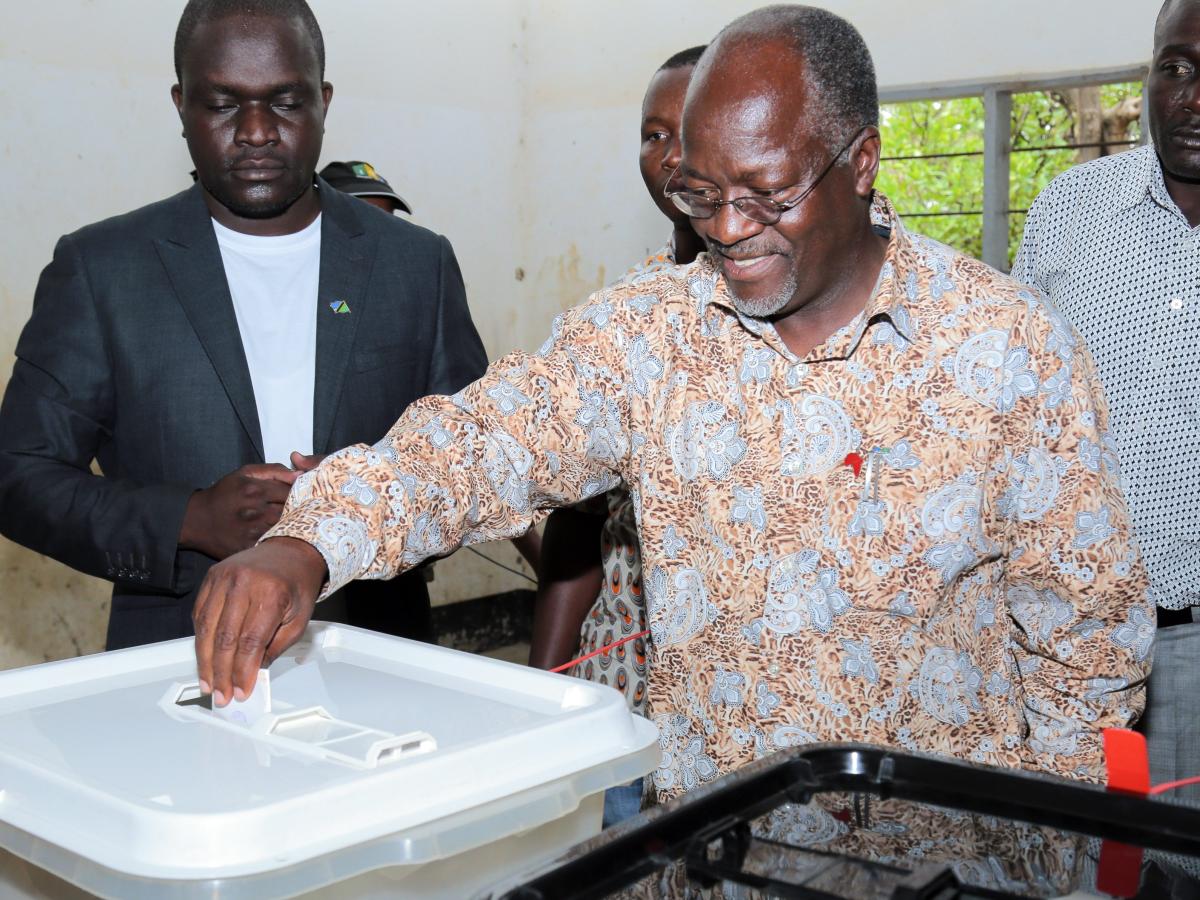Tanzania’s National Electoral Commission (NEC) began releasing parliamentary election results on Thursday with the opposition losing key seats in a vote they said was riddled with irregularities.
Counting was taking place across Tanzania and its semi-autonomous archipelago Zanzibar – which also elects its own president and lawmakers – after the opposition reported ballot box stuffing and their party agents thrown out of polling stations.
As results trickled out on state TV, opposition Chadema lawmaker and chairman Freeman Mbowe lost his long-held seat at Hai in the Kilimanjaro region, one of several lost by the opposition.
“We can’t talk about elections. It is violence. There were several deplorable incidents across the country,” Mbowe told AFP news agency on Wednesday.
Mbowe, who was brutally assaulted in what he said was a politically-motivated attack in June, tweeted that his life was “in danger” on the eve of the election, accusing police of raiding his hotel.
There are 264 parliamentary seats up for grabs in the election.
The NEC director of elections, Wilson Charles Mahera, said they would shortly begin releasing results from a presidential race in which John Magufuli is seeking a second term in office.
“The commission is starting to receive results from the presidential election … after verification, we will at any moment start publishing preliminary results,” he told reporters.
Long deemed a haven of stability in East Africa, observers say Tanzania is sliding into autocracy under Magufuli and his Chama Cha Mapinduzi (CCM) party, which has been in power since independence in 1961.
Magufuli, who turns 61 on Thursday, was elected in 2015 as a corruption-busting man of the people, but has drawn criticism over a slide into autocracy, crackdown on the opposition and freedom of speech.
His main challenger in a field of 15 presidential candidates is 52-year-old Tundu Lissu, who returned to Tanzania in July after three years abroad recovering from 16 bullet wounds sustained in what he believes was a politically-motivated assassination attempt.
Lissu’s return reinvigorated an opposition demoralised by arrests, attacks and a ban on rallies outside of election time.
Lissu told Reuters news agency the defects in the process meant that the results – expected within a week – could not be trusted.
“The results should not be recognised by any country in the world, should not be recognised by the African Union and the Commonwealth,” Lissu told Reuters, urging the world to take action against “those who perpetrated this travesty”.

